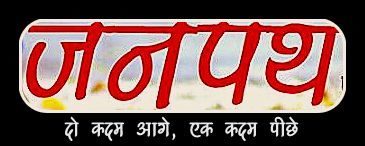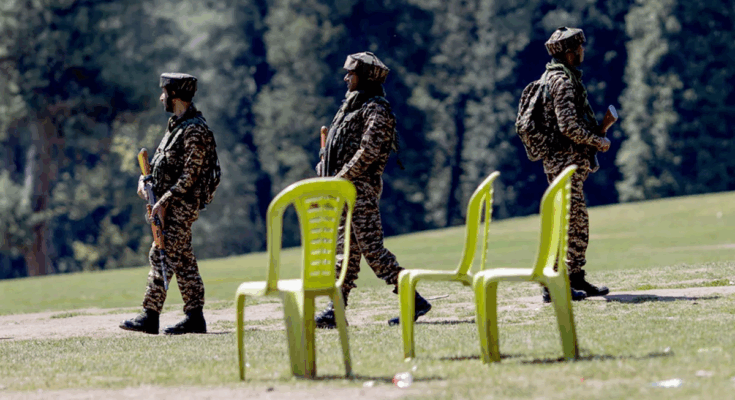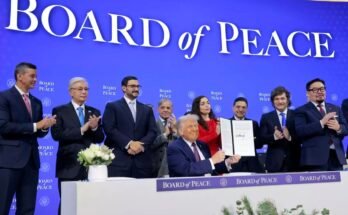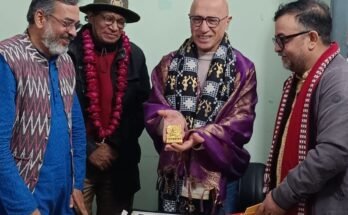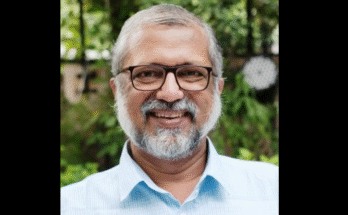The PUCL strongly condemns the killings of the 26 tourists, including one local resident – a pony ride operator, and one citizen of Nepal in the afternoon of the 22nd April, 2025 in Pahalgam, Jammu and Kashmir. These attacks are one of the deadliest attacks in 25 years. The deliberate targeting of the ‘valley of tourists’, have achieved their grim purpose of sending shock and terror waves through the country, destroying the feeling of normalcy in the Kashmir valley and prompting most tourists to return home abandoning their tours midway and sending a chill through the tourism industry.
These killings of innocent people are reprehensible and appalling. We stand in grief and express our heartfelt support and solidarity to the families of those who have been killed and injured. We are hopeful that the Government of India who controls law and order in J&K will ensure the arrest of the killers and enable speedy justice to the deceased and their kin. We also demand just and adequate compensation from both the Government of India and the state Governments to which the deceased belonged. We know that this is indeed nowhere near compensating for the gravity of the loss suffered by families, but such compensation must be given as a bare acknowledgment of the tragedy which has befallen the family members of those who have been so callously murdered.
We appreciate the fact that the Prime Minister cut short his trip to Saudi Arabia and Mr. Amit Shah, the home Minister, rushed to console the families, whose grief needed to be acknowledged and who needed to be supported in this difficult time. It has to be acknowledged that the government machinery moved quickly to transport the bodies back home so as to ensure that families had an opportunity to bid farewell to their loved ones. We would also presume that the 15,000 tourists from mainland India, who decided to return, were provided with facilities of travel, mitigating the feelings of helplessness and abandonment and communicating that the state is willing and able to fulfil its constitutional obligation of ensuring safe and timely return to their homes.
We are deeply heartened to see the humane and humanitarian response by the community of Kashmiris of Pahalgam, who by evening of the 22nd April, took out candle marches, condemning the bloodshed of tourists and the Masjid committees, who instantaneously and publicly condemned the killings. Similarly, many institutions in Jammu and Kashmir issued press-notes, many of which are available online. Several Kashmiri newspapers in English and Urdu, printed black pages as a mark of protest. The Chamber of Commerce of J&K and the J&K Jurists Bar Association, called for a bandh on Tuesday itself. The J&K Students Association released a statement saying they express their unwavering solidarity with the victims’ families and all those affected and “unequivocally condemned the heinous attack, calling it an act of cowardice and brutality. No cause, no ideology can ever justify such barbarity. Terror has no religion, no justification.”
The J&K High Court Bar Association issued a statement saying, “The loss of innocent lives visiting our land, is a profound tragedy that deeply saddens the legal fraternity and the people of Jammu and Kashmir. We extend our unwavering support and solidarity to the affected families during this time of grief.” All this goes to show that Kashmiri society opposes cold blooded murder of innocents, which is a grievous violation of the norms of both humanity and legality which bind us together.
For the PUCL, these unconscionable killings are to be unequivocally condemned. At the same time, the incident should result in a process of heartfelt and self-critical reflection by the Union of India, media, civil society as well as ordinary citizens as to whether there is veracity to the claim and rhetoric that, post the abolition of Article 370, peace has been restored in Kashmir and normalcy has returned to the valley. This has been the message put out by the Prime Minister Narendra Modi and Home Minister Amit Shah, the Lieutenant Governor and other high dignitaries.
We also have to ask the hard questions as to how come Indian Intelligence has once again completely failed, like in Pulwama, 2019, to anticipate the tragedy which was to come. How is it that this terrorist attack was not prevented by the security forces in one of the most highly militarised zones in the world? What explains the complete absence of the security forces in a popular holiday location like Pahalgam ? It is crucial that accountability for these security lapses be fixed.
The Government of India has now decided to come down heavily on even the semblance of a restricted relationship with Pakistan. Partially closing the Indian Embassy in Pakistan, asking Pakistani diplomats to leave India immediately, removal of barricades from outside the Pakistan Embassy in New Delhi, closing the Wagah Attari border, clearly shows that the Government does not wish to have any diplomatic relationship with the Government of Pakistan. It will be a big blow to not just diplomatic but all cultural, economic and political processes, which will only cause more anti-India and anti-Pakistan feelings in the two countries. India in violation of its treaty obligations has also illegally suspended the operation of the 1960 Indus water treaty, which will become a form of collective punishment of the people of Pakistan as the river Indus is a crucial lifeline of Pakistan. It will also invariably escalate tensions with Pakistan when the need of the hour is de-escalation and confidence building. Predictably, Pakistan has countered calling the diverting of Indus waters an ‘act of war’ and followed it by suspending the Simla Pact. The consequence of this type of sabre rattling will only be more alienation between Indians, Pakistanis and Kashmiris.
According to official sources, more than 1500 Kashmiri people have been picked up in south Kashmir and are being interrogated by internal and external security forces. This data according to some Kashmiris, may be only half the actual numbers picked up. Such large scale, arbitrary detention of people, will lead to increased atrocities by the police and security forces on the people and put the already fragile relationship of the Kashmiri people with the people of India into a deeper crisis. It also means that the economy of Kashmir, will be plunged to the nadir.
Since Article 370 was repealed we have observed that civil society has been crushed and senior activists like Pervez Khurram, have been in jail for over three years. Newspapers have been closed down or being censored heavily. Even the Press Club was taken over by media agencies sponsored by the security agencies. Since the abrogation of Article 370 , many journalists have been arrested, several raided, with some continuing to be in jail. Those released, have no media jobs and are ostracised by others fearful of consequences if they relate with them. The right to protest practically does not exist. Protests including for basic needs like roti, kapda aur makaan, as well as protests against the genocide in Palestine have not been allowed.
The fall out of the Pehalgam killings is already reflecting against the Kashmiris workers and students, in the rest of India. A deliberately orchestrated and targeted campaign of hate and vilification against Kashmiri students has begun in different states, leading to increased sense of insecurity and alienation.
The Jammu and Kashmir Students Association are regularly putting out updates since the shootout at Pehalgam on the 23rd that Kashmiri students and workers are being threatened or terrorised to leave their rented accommodation on the college/ university campus, in many places.
In Prayagraj UP, Kashmiri students have been asked to vacate their homes, by the landlords, in the name of security. There have been frantic distress calls from Kashmiri students from Arni University, Kathghar (Indora), in Kangra, Himachal Pradesh who are being harassed, abused, and physically attacked by right-wing and fringe elements. The Hindu Raksha Dal and other similar groups have issued written threats to several colleges in Dehradun Uttrakhand, demanding the expulsion of Kashmiri Muslim students. Around 20 terrified Kashmiri students from BFIT College Suduwala Dehradun have already fled after they got a chilling ultimatum, demanding that all Kashmiri Muslim students vacate the state. Even in Derabassi, Chandigarh, where over a 100 Kashmiri students are enrolled in the Universal Group of Institutions, Kashmiri students were brutally attacked inside the hostel premises during the night, with the Punjab Police not providing timely protection or assistance. In the Delhi/ Noida based, Amity University, a Kashmiri student was brutally thrashed.

Unfortunately, the central government has not given a call to the rest of India not to react and exacerbate an already fragile social context for Kashmiris who have sought education and livelihoods in other parts of India.
What however gives us a sense of hope and optimism is that even in the midst of these shocking actions which violate our constitutional premise of fraternity, other civil society groups have come forward to offer succour and support to Kashmiri students, indicating that the spirit of fraternity, is still alive and all is not lost. This spirit of compassion and concern is most vital to building ‘bridges of peace and dialogue’ with the people of Kashmir and the rest of India.
It is important that our collective grief does not transmute into a cry for collective vengeance. The tragedy should not be communalised and instrumentalized to further a divide between the religious communities in India.
A call for justice, requires that we pay attention to the forms of mourning of the ordinary citizens of Pehalgam who have assisted those who suffered as well as the innumerable statements by Kashmiri civil society groups as well as ordinary citizens expressing their sadness and outrage at the killings. The way forward has to be based on a coming together of people in sorrow, empathy and finally solidarity as we strive to build bridges between people regardless of religion.
It is vital that the restrictions imposed on the people of Kashmir, post the abrogation of Article 370 be removed and the causes of alienation, dispossession and dislocation are addressed, so that the basis of lasting peace is laid in the Kashmir valley. The Government of India has to rethink its policy on Kashmir and involve ordinary Kashmiris in the process of dialogue, thereby building such a long term peace process in Kashmir.
It is imperative that both governments realize their responsibility to their people and the bugles of war fall silent. Any other path by two nuclear armed powers would be catastrophic.
That is our collective constitutional responsibility.
The PUCL demands that
- Immediately provide compensation and rehabilitation of the families of the deceased and injured. Adequate compensation must be provided by the Central Government as well as the State Government to which the deceased belong.
- The Union Government must not escalate the cold war into military operations with Pakistan. Instead the diplomatic route must be taken and International fora must be utilized effectively, including the UN General Assembly and Security Council to demand that if Pakistan is responsible, it is to be made accountable. India must back down on its suspension of the operation of the Indus River Treaty as a move towards de-escalation.
- The Union Government must restore democratic rights of the people of Kashmir, let civil society have the freedom to question government peacefully, allow for the free expression of opinion through media and civil society reports, allow access to funding and lift the unconstitutional restrictions on the media.
- Release all civil society representatives, journalists and lawyers from jail, who were targeted for being dissenters to the GOI policies as well as for challenging the high handed and arbitrary actions of the security forces.
- Ensure the safety and protect the right to dignity and equal treatment under law of all Kashmiri students, studying outside J&K and work proactively to prevent such arbitrary and unconstitutional evictions.
Kavita Srivastava
President, PUCL
Dr. V. Suresh
Gen. Secretary, PUCL
